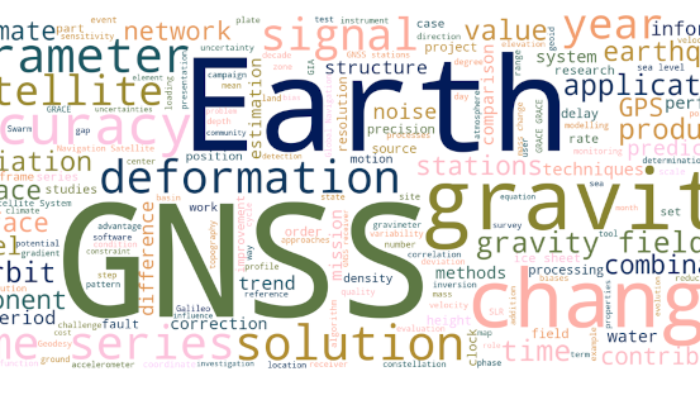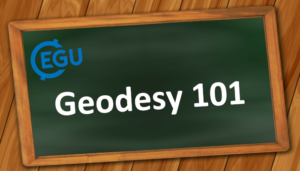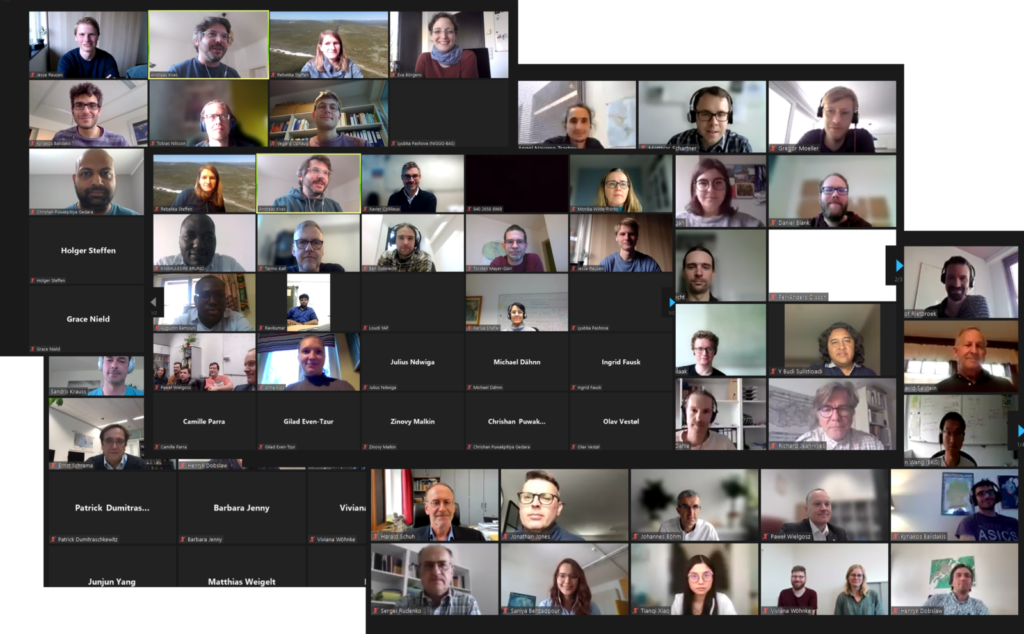
Hi EGU Community!
With the first blog post of 2023, we want to look back at what happened in the G Division during the last year and give an outlook on what you can expect for the new year!
Looking back on 2022
G Division at the General Assembly
After two years of online-only general assemblies (GAs), in 2022 the GA switched to a hybrid format with an in-person part in Vienna and online participation from all over the world.
Although there were some technical hiccups, it was a very enjoyable conference week and it was great meeting colleagues on-site again. The G division team held a number of networking events throughout the week, starting on Monday with the “Geodesy Fika” (Fika means coffee break in Swedish 🙂), to the Geodesy Division Dinner on Wednesday and a “meet the division team” on Thursday. In total, the GA featured 24 geodesy sessions with 370 abstracts. At the GA 2022, we also held the first “Geodesy 101” short course, which had quite the attendance and was well received.
Likewise, we had the opportunity to enjoy enjoy the Vening Meinesz Medal lecture by Peter J. G. Teunissen titled “Geodetic inference: a selection of some challenging topics” and the outstanding Early Career Scientist Award lecture by Kristel Chanard titled “Geodesy: a sensor for hydrology”. The 2022 G division Outstanding Student and PhD candidate Presentation (OSPP) Awards were awarded to Yosra Afrasteh for her work “New realization for European vertical reference system; a first attempt to include the hydrodynamic leveling data” and Oliver Pollard for his presentation “Investigating the Sensitivity of North Sea Glacial Isostatic Adjustment during the Last Interglacial to the Penultimate Deglaciation of Global Ice Sheets”.
Campfires
In 2022 we continued our successful “Share your Research” Campfire series of networking events. These online seminars are targeted at early career scientists to present their research in a more informal setting to get input and feedback from the wider community. Topics this year included Coastal sea level and wave height observations with radar altimetry (Marcello Passaro, DGFI – TU Munich), Obstacles to realistic velocity uncertainty assessment from GNSS position time series (Kevin Gobron, Royal Observatory of Belgium), SODA – a service to forecast space weather effects on LEO satellites (Sandro Krauss, TU Graz), Observing hydrological extremes with GRACE and GRACE-FO (Eva Börgens, GFZ Potsdam) and Modelling horizontal motions resulting from Glacial Isostatic Adjustment (Jesse Reusen, TU Delft). You can check out all previous Campfire abstracts and speaker information in our corresponding blog series. We want to thank all speakers and participants, who have made these events a very enjoyable and fruitful experience!
After the start of the Geodesy 101 short course at the GA in Vienna, we decided to continue the Geodesy 101 topic with a targeted campfire edition where we dive into core geodetic topics in an accessible manner The aim of the Geodesy 101 Campfire webinar series is to outline how geodetic datasets for geoscientific applications are derived, what the theoretical background is and highlight potential limitations. Geodesy 101 is therefore relevant to a number of EGU divisions, which was underlined by over 50 participants in the first installment about coordinate reference frames, held by Xavier Collilieux. You can the slides of Xavier’s presentation at the ITRF website.
Division Blog and Outreach
The G Division blog featured a total of 12 posts last year, with a steady stream of visitors, comparable to 2021. We have continued our “Geodesists on Tour” series, where we show the importance of fieldwork and how in-situ data contributes to Earth system science. Another highlight is Thomas Frederikse’s blog about how geodesy helps monitoring sea-level rise and contributes to better understanding the physics behind it to improve future projections. Thomas’ blog post is also nominated for the 2022 division blog of the year, so if you enjoy it, cast your vote!
Rebekka Steffen, Benedikt Soja, and Andreas Kvas also held a webinar “How To Measure The Earth – An Introduction To Geodesy”, where a broad overview of geodesy was presented to a general audience. You can check out the recording at EGU’s YouTube Channel.
What will 2023 have to offer?
General Assembly 2023
The GA 2023 will be a hybrid conference and move towards a more traditional meeting style, with orals, posters and PICOs both accessible on-site and online. You can find up-to-date information on the status and import deadlines on https://www.egu23.eu/. There will be a number of G division networking events throughout the week where you can get in touch with the division team and get to know new colleagues. And finally, there will be the Geodesy Reception at TUtheSky at TU Wien! We will keep you posted on exact dates and times until the GA at the end of April.
It is also our great pleasure to congratulate the winners of the 2023 Vening Meinesz Medal Jürgen Müller and the 2023 Geodesy Division Outstanding ECS Rebekka Steffen and look forward to two exciting medal lectures at the GA!
Campfires
We are very much looking forward to continuing the “Share your research” series of online networking events in 2022 and host a number of “Geodesy 101” themed campfires, where we take a closer look at geodetic research areas and applications. If you want to present your research at one of the future “Share your research” Campfires, contact us at ecs-g@egu.eu. The exact dates of the events will be posted on this blog and the G division social media outlets.
Blog and Outreach
We want to continue to publish geodesy related stories of PhD life, research aspects that are less visible in traditional science publications and interesting stories of how we ended up at the current state of the art. If you want to contribute to the blog or the general outreach of the G division, email us at ecs-g@egu.eu.
Get in touch!
We have established a continuous feedback form, where you can tell us how we are doing, what we can do better and bring your own ideas to the G division. Feel free to contact us at ecs-g@egu.eu with any G division related issues.
We wish you a good and successful start of 2023!
The Geodesy Division Team



